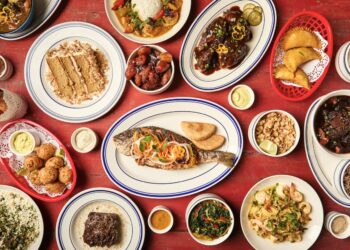Despite the region’s production challenges and changing public sentiment, the demand for meat protein continues to grow.
With limited agricultural potential due to its arid climate, the GCC has had to rely on imports to satisfy growing meat demand. In the UAE alone, around 80% of the meat consumed in the country is imported.
A rapidly growing population throughout the GCC will mean demand for protein-rich food such as meat is likely to increase, which is the top global food trend for 2015 and beyond, according to Gulfood. The population within the GCC countriesis set to exceed 50 million by 2020, a 20% increase since 2010, with rising regional affluence levels likely to result in increased demand for meat.
The Dubai food and hospitality trade exhibition predicted that “with increased quality, freshness and a demand for improved Halal standards being of paramount importance, the regional market is vast for every player in the global meat industry”.
With this region-wide growing trend, Catering News ME spoke to several meat suppliers to see how they were coping with the increased demand.
Under the microscope:
JM Foods, product development chef and marketing head, Mark Taquet. JM Foods has a 30% market share of the high quality meats business for HORECA in the UAE and Oman.
Banvit, General Manager, Murat Kunt. Banvit is the leading poultry processor in Turkey.
Midamar, marketing and communications director, Sara Sayed. Midamar is a leading USA based Halal food brand and global supply chain management company.
Canada Beef, Business Innovation Director, Robert Serapiglia. Canada Beef is the marketing arm for the Canadian Cattle and Market Development Research Council.
Middle East North Africa, Meat and & Livestock Australia (MLA), International Business Manager, David Beatty. MLA has 50,000 livestock producing members.
What trends are you recording in the trade of meat within the Middle East?
Murat: Customers are getting more demanding and asking for customised products and tailor made solutions. For HORECA customers, quality and traceability are very important. Even a very small problem in quality can lead to major issues and may harm the reputation of the customer. In this context, Banvit adds value to its HORECA customers by providing tailor made solutions depending on their needs. Also Banvit keeps highest standards in its production with full traceability.
Robert: Since Canada only consumes approximately half of the beef and veal it produces, the sale of Halal beef and veal to the premium market is an excellent opportunity for excess beef and veal supplies from Canada. The sale of middle meats still represents the bulk of the demand, and through industry and consumer engagement secondary cuts are growing in awareness and demand. There is rapid growth of gourmet burger outlets of which Canadian beef can provide niche market opportunities.
The Round Up app, available as a free download from Canada Beef to smart phones and tablets helps to simplify the complexities consumers face with selecting, handling and preparing beef cuts.
David: We are seeing solid growth of all Australian beef and lamb categories to the Middle East region. Some consumers are demanding more organic and grass fed beef products and we have seen good growth in this higher end sector. Grain fed beef remains very strong due to consistency in quality and tenderness. For both beef and lamb we have seen chefs exploring the use of different cuts such as oyster blade, brisket and beef cheek. When you have such a great product utilising the whole carcass makes great sense both from a quality perspective but also financially.
Sara: Meat consumption is still on the rise in the Middle East both in food service and in the retail market. More and more consumers are demanding organic meat and inquiring about the source of the proteins. Another trend is the demand for deli meats that are minimally processed and low fat like whole muscle turkey deli meat. The meat must be delicious and healthy. The two are not mutually exclusive. This is a growing market that food service establishments should take notice of.”
What are the challenges you face in the Middle East region?
Mark: Regulations between Middle East countries can sometimes be tricky. Currency fluctuations have an impact on prices which opens the door to competition on similar products from different parts of the world because the market is pretty price sensitive at present. JM Foods offer a wide variety of support services and training modules to help maintain our relationships and to increase business with our customers across the UAE.
We find that guidelines vary from emirate to emirate and from country to country but as we draw closer to Expo 2020, UAE regulations will be streamlined and have reached the same levels you would expect to find in Europe. Dubai Municipality has done a great job in recent years.
The systems put in place that every company must comply to cover every aspect in maintaining safe transportation, receiving, storage and distribution of products but what consumers may not know is the work that has been happening for a number of years now in countries such as Australia and Ireland through organisations such as MLA and Bord Bia who have initiated a programme called Origin Green. These initiatives have promoted more sustainable practices for livestock production and the stringent guidelines put in place give end consumers a healthier consistent product throughout the year.”
Robert: The challenges we face in the ME region are consistency in globally recognised Halal certifying bodies, and competition from other beef producing countries.
The regulations seem to be manageable and reflect excellent food safety and fair trade standards. Recently, there has been an increased emphasis placed on Halal certification criteria to ensure that animals are only fed meal protein from fish and no other animal source.
David: We have been based in and supporting the region for over 40 years and have established and trusted relationships across the region. In a global market where demand for Australian beef and lamb is very strong our biggest challenges are to ensure that we can provide a supply for a very strong MENA market.
Australia has world leading quality assurance and production systems with exports of beef and lamb to over 100 countries worldwide. These world class regulated systems allow very good access to Middle Eastern markets. From an Australian perspective our systems comply with the regions rules and regulations. Our Halal certification systems and associated QA have ensured that recent changes to Halal certification have had very little impact on our ability to supply this market.”
Sara: The biggest challenges that we and other companies face are environmental. There are a lot of uncontrollable variables in this business like increasing costs of feed due to drought, transport costs, changes in regulations per country, most recently bird flu in Iowa – where literally millions of turkeys and chickens were destroyed. The cost of turkeys has gone through the roof and they are very difficult for a small company to source. In international business sometimes decisions by a certain government department in a country will affect the flow of imports. At Midamar we have invested in a local UAE office, as such we are able to adequately manage the market challenges as they surface.
The regulations in the Middle East are compliant with Shariah and reasonable. They are not over the top or too stringent for companies to comply with. If a company wants to enter the UAE market, they must learn the regulations and comply. It’s doable.
How do you anticipate the Middle East meat market changing in the future?
Murat: Chicken is a very healthy source of protein, consumed by different age and socio economic groups. We think that category will continue to grow.
Robert: The Middle East is a market that continues to grow and expand in preparation to host world events and supporting the rising tourism and expatriate work force. Canadian beef and veal offer premium, nice market opportunities to differentiate from the traditional competition through new brand messaging of the product, delivering excellence without compromise to the consumer.
Mark: Consumers seem to be moving a little more towards grass fed, free range, organic, HGP free, antibiotic free products which is great news and, with an expected growth of at least 20-30% in the coming years, it is vital that companies have the correct systems and people in place to maintain consistency and quality and also to educate on the benefits of a grain or grass fed product – both of which are of the highest quality and healthy if consumed in moderation. Lastly, the continued commitment of the producers to ensure we deliver the best quality product day in day out throughout the year.
David: Having been awarded the World Expo 2020 the UAE’s already fast-growing sector is expanding even more rapidly, with over 100 new hotels due to be completed by the end of the decade. The aim for Dubai is to have 200 million passengers per year through its airports. Other opportunities include a potential to further develop the utilisation of less traditional cuts. Demonstrating different cooking methods for different cuts enabling full carcass utilisation will allow the foodservice and consumer sector to benefit from obtaining quality Australian meat from a range of price categories.
Sara: We anticipate that there will be more demand for diverse meat options like bison and buffalo. This market is unique in that you have a thriving hospitality sector and a varied consumer market that is aware of options and willing to pay for what it wants. No company can be all things to all people. The Middle Eastern market will continue to grow in population and diversity. At Midamar for example, we have Midwestern grass and corn fed cattle. It has a unique marbling and flavour, and there is a niche market in the Middle East that demands this flavour profile. Similarly there is a market for hickory smoked breakfast beef strips and a different market for turkey strips. In the UAE and other Gulf States this poses a challenge to the hospitality industry. Just look at the breakfast menus and buffets at 5-star hotels – they have to cater to breakfast needs from laban to kimchi to turkey strips and anchovies.


































































